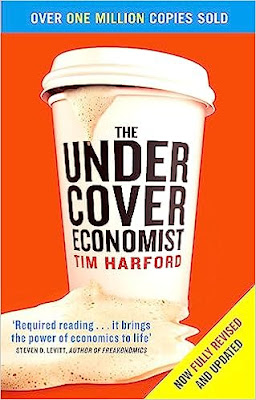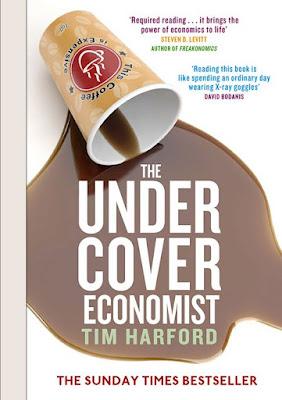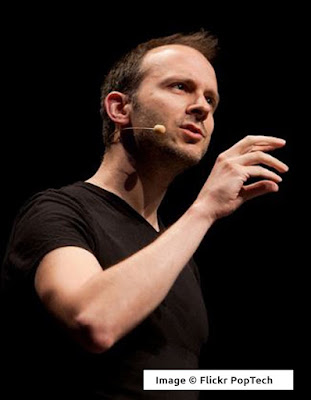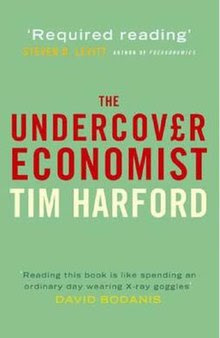"The Undercover Economist" is a book written by Tim Harford, first published in 2005. It explores the principles of economics and how they apply to everyday life situations. The book aims to help readers understand the hidden economic forces that shape our world and decision-making processes. Some of the main lessons from the book include:
1. The Power of Incentives: Incentives play a crucial role in influencing people's behavior. Understanding what motivates individuals and organizations can explain why they make certain choices and decisions. Consider a company that wants to improve employee productivity. The management decides to offer a performance-based bonus to the sales team. As a result, the sales team becomes highly motivated to increase their sales because the incentive of earning a bonus is driving their behavior. In this case, the power of incentives influences individual behavior and leads to improved performance.
2. Unintended Consequences: Actions often have unintended consequences, which can be both positive and negative. Economic decisions and policies can lead to outcomes that were not initially anticipated. A government introduces rent controls to help lower-income families afford housing. While this policy may initially seem beneficial, it can lead to unintended consequences such as a decrease in the supply of rental properties. Landlords may find it less profitable to rent out their properties at the capped rates, leading to a shortage of available rental units and potentially worsening the housing crisis.
3. Supply and Demand: The forces of supply and demand are fundamental drivers of market behavior. Understanding these principles can shed light on pricing, shortages, and surpluses.During the holiday season, the demand for toys increases significantly as parents shop for gifts for their children. The toy manufacturers respond by increasing production to meet the higher demand, leading to an increase in the price of popular toys due to the limited supply. Conversely, after the holiday season, when the demand decreases, prices may drop as stores try to clear their excess inventory.4. Information Asymmetry: Information is not always equally available to all parties in an economic exchange. When one party has more information than the other, it can lead to market failures and inefficiencies. When buying a used car, the seller typically has more information about the vehicle's history and condition than the buyer. The seller might not disclose certain defects or issues with the car, leading to a situation where the buyer lacks essential information to make an informed decision. This information asymmetry can result in the buyer paying more than the car is worth or purchasing a vehicle with undisclosed problems.
5. Comparative Advantage: The concept of comparative advantage suggests that individuals, firms, and countries should specialize in producing goods or services where they have a lower opportunity cost, leading to overall gains from trade. Consider two countries, A and B. Country A is more efficient in producing wheat, while Country B is better at producing electronics. To maximize overall output and gains from trade, it makes sense for Country A to focus on producing wheat and Country B to specialize in electronics. By trading their respective products, both countries can benefit from each other's comparative advantages and achieve higher overall productivity.6. Externalities: Economic actions can have effects that spill over onto others who were not directly involved in the transaction. These externalities can be positive or negative and can impact society as a whole. A factory releases pollutants into the nearby river as a byproduct of its production process. The cost of cleaning up the pollution and the health impacts on local residents are externalities not factored into the factory's production costs. The negative externalities affect the environment and the well-being of the community, highlighting the need for regulations or market mechanisms to internalize such costs.
7. Rational Decision-Making: The book explores the concept of rational decision-making, where individuals make choices to maximize their own well-being, given their preferences and constraints. When buying groceries, a consumer compares the prices and quality of different products before making a purchase decision. They consider their budget constraints and personal preferences to maximize the satisfaction they get from their grocery shopping. Rational decision-making involves weighing the benefits and costs of various choices to make the best possible decision based on individual preferences.8. Hidden Order in Chaos: Despite the apparent complexity of economic systems, there is often an underlying order that emerges from the interactions of individuals and businesses. In a bustling city, thousands of taxis move around seemingly chaotically. However, their movements create an unseen order, with taxis filling gaps and meeting demand in a dynamic manner. This hidden order emerges from the decentralized decisions of taxi drivers responding to passenger requests and traffic conditions.
9. Behavioral Economics: Harford delves into how behavioral economics can explain departures from traditional economic models. Human psychology and biases can influence decision-making and economic outcomes. In an experiment, researchers find that people tend to value a certain item more if they already own it, a phenomenon known as the endowment effect. This irrational attachment can influence individuals' decisions, leading them to reject fair offers to sell an item they own at a price they would willingly pay to buy it.
10. Poverty and Development: The book touches on the challenges of poverty and development, discussing various approaches to addressing these issues effectively. An impoverished community lacks access to quality education and healthcare. As a result, the residents face limited opportunities to improve their skills and health, perpetuating the cycle of poverty. Development efforts aimed at providing better education, healthcare, and infrastructure can help break this cycle and uplift the community.
11. Public Policy: Harford discusses how economic thinking can inform public policy decisions and offers insights into the potential consequences of various policy interventions. A government considers implementing a sugar tax to combat rising obesity rates. The policy aims to discourage the consumption of sugary beverages and raise revenue to invest in health initiatives. However, the unintended consequence could be the substitution of taxed sugary drinks with untaxed alternatives, leading to little overall reduction in caloric intake and potential negative effects on low-income consumers disproportionately impacted by the tax.





Comments
Post a Comment
Thanks for leaving comments. You are making this discussion richer and more beneficial to everyone. Do not hold back.